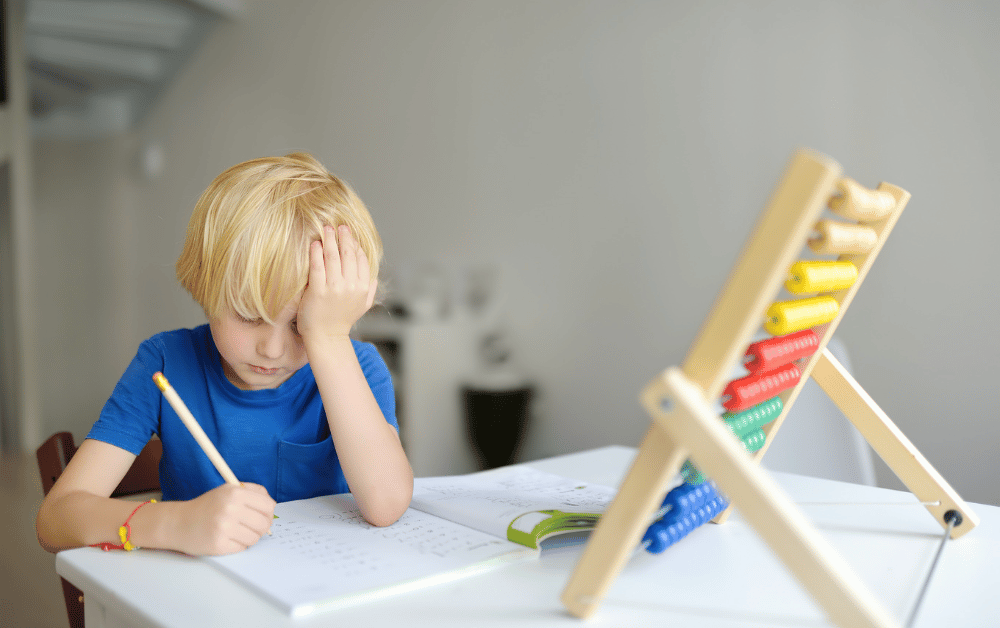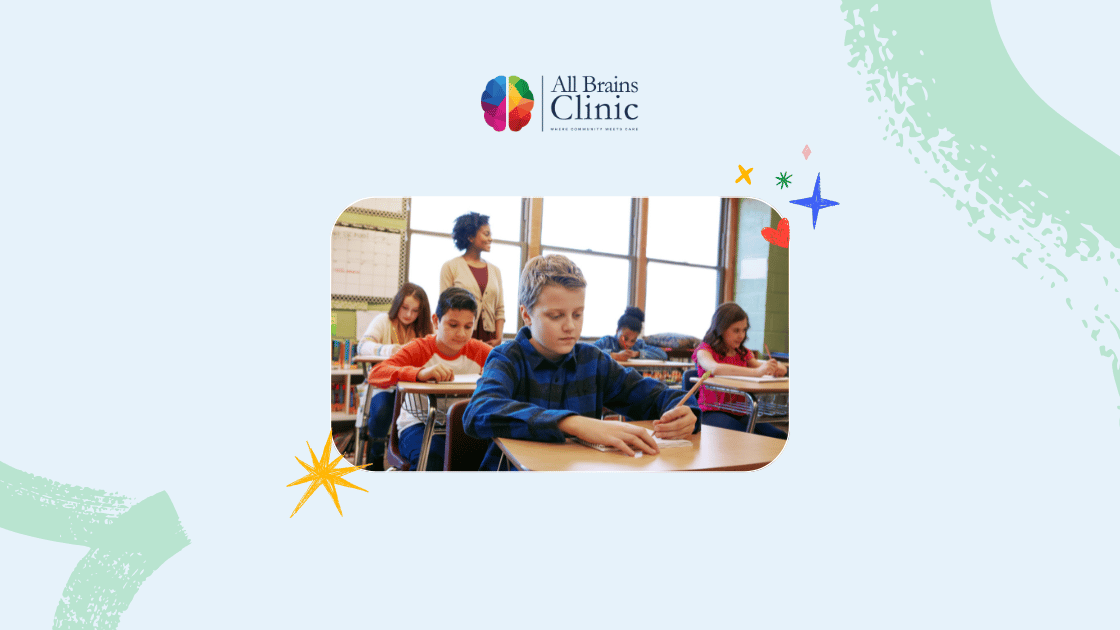When your child learns differently, school can sometimes feel like a tough fit, but with the right support, their potential shines. Imagine your child walking into school with a support plan that shows how they truly learn. A psychoeducational assessment can be the first step to make that happen. Educators and specialists use the information provided by these assessments to develop Individual Education Plans (IEPs). This way, your child receives personalized educational support tailored specifically to their strengths and areas that need improvement.
Understanding Psychoeducational Assessments for Special Education in BC
During a psychoeducational assessment, your child’s intellectual functioning, academic achievement, emotional regulation, and social communication are carefully evaluated. To conduct it, qualified and compassionate psychologists or specialists use standardized tests, interviews, observations, and educational records. The final goal is to get a full and clear picture of how your child learns and interacts in the school environment. When your child’s learning profile is clearly understood, educators can put the right supports in place, helping your child feel seen, capable, and ready to flourish at school.
This assessment isn't meant to label your child but rather to understand how they learn best. With this knowledge, schools are better equipped to build tailored supports, both in the classroom and beyond. When your child’s unique learning style is recognized and respected, their confidence can grow, and that makes all the difference.

Role of Psychoeducational Assessments in IEP Development in BC
In British Columbia, psychoeducational assessments play an important role in shaping effective Individual Education Plans for children who learn differently. These IEPs are customized plans that provide detailed educational, academic, and social-emotional goals for your child. Based on assessment findings, the IEP includes the necessary accommodations, interventions, and resources designed to help your child succeed.
By clearly identifying strengths and areas requiring more support, psychoeducational assessments make sure that your child's IEP is realistic, measurable, and fully supportive of their learning journey. If you're considering whether this kind of assessment could help your child, our clinic offers comprehensive psychoeducational evaluations tailored to each child’s unique needs and personality.

Benefits of Integrating Psychoeducational Assessments into Special Education
When integrated into special education, psychoeducational assessments can make a meaningful difference in your child’s learning experience. They offer a clearer picture of how your child thinks, processes information, and responds emotionally. This will give the teachers and specialists the opportunity to provide the support your child truly needs!
This approach not only leads to academic progress but also brings children emotional confidence and resilience. The findings from the assessment can be used to come up with appropriate teaching methods, helpful technologies, and school-based interventions. Most importantly, they create a safe space for families, educators, and professionals to work together with your child’s best interest at heart.
Remember that a psychoeducational assessment is often part of a comprehensive autism evaluation. It can help clarify whether your child’s learning and behaviour patterns are linked to autism or other developmental differences. If you’re exploring an autism assessment, this type of evaluation may also be an important step toward getting a full picture of your child’s needs.

Special Education Supports from the BC Ministry of Education
In British Columbia, the Ministry of Education is committed to creating inclusive and supportive learning environments for all children, including those on the autism spectrum. This commitment goes far beyond policies; it involves ensuring that schools have access to skilled specialists, reliable assessment tools, and ongoing training, giving the educators the chance to better understand and support neurodivergent learners.
For you as a parent, that means your child isn't facing these challenges alone. There are systems in place to make sure they receive the thoughtful accommodations and meaningful support they deserve. It is your child’s right to learn, grow, and belong, and the Ministry of Education’s goal is to honor that right.

BC School Special Education Assessments: A Step-by-Step Process
The psychoeducational assessment process in BC schools aims to be collaborative, respectful, and supportive of both you and your child. So there’s no need to feel overwhelmed or worried. If your child is facing academic, behavioural, or emotional challenges at school, a referral for assessment may be recommended. This decision is never made lightly; it involves open conversations between teachers, school staff, and you as a parent.
Here’s what typically happens step by step:
- Referral and Consent: A teacher or support staff member may suggest an assessment, but your involvement is important from the beginning. You’ll be asked to give informed consent, and your insights about your child’s strengths and struggles will be valued.
- Planning the Assessment: A qualified psychologist or specialist will create a detailed assessment plan. This may include one-on-one testing, classroom observations, and interviews with both you and school staff. All of these items are created with your child’s comfort in mind.
- Understanding the Results: After the assessment, you'll receive a clear, parent-friendly report that summarizes your child’s learning profile. This report highlights areas of strength, identifies any challenges, and offers specific, evidence-based recommendations.
- Supporting Your Child Through an IEP: These findings then guide the development or revision of your child’s Individual Education Plan (IEP), so that they receive support that’s genuinely aligned with how they learn and experience the school environment.
Throughout every stage, your voice matters. As a parent, you’re respected as a key partner in your child’s educational journey. The main goal is that you feel informed, empowered, and supported every step of the way.

Navigating School Assessments: What to Expect and Where to Get Support
Understanding assessments, IEPs, and school processes can feel overwhelming, especially when you're trying to focus on what’s best for your child. That’s where a school support advocate can help.
They act as a bridge between you and the school, making sure your child’s needs are clearly communicated and followed through, so you don’t have to do it all on your own.
If you’d like someone by your side during school meetings or help understanding your child’s plan, learn more about our Student Support service here.
Psychoeducational Assessments: Ensuring Inclusive Education in BC Schools
As a parent, what you want most is simple: for your child to feel seen, supported, and successful at school. Psychoeducational assessments can play a powerful role in making that happen. By helping educators understand how your child learns, communicates, and experiences the classroom, these assessments open the door to meaningful, personalised support.
You can take comfort in knowing that these assessments are carried out with care, respect, and deep consideration for your child’s unique personality and needs. With the right strategies in place and the strength of BC’s inclusive education system behind them, your child can not only keep up but truly flourish, both in school and in life.

Dr. Ali Eslami, Chief Editor
Dr. Ali Eslami is a child psychiatrist at BC Children’s Hospital and All Brains Clinic with a PhD from Brown University. With expertise in neurodevelopmental disorders, autism assessment, and AI research in mental health, he ensures every article meets the highest standards. His sharp editorial eye guarantees clarity, accuracy, and credibility in all our content.

.svg)


.svg)
.png)



.png)


.svg)








.svg)




